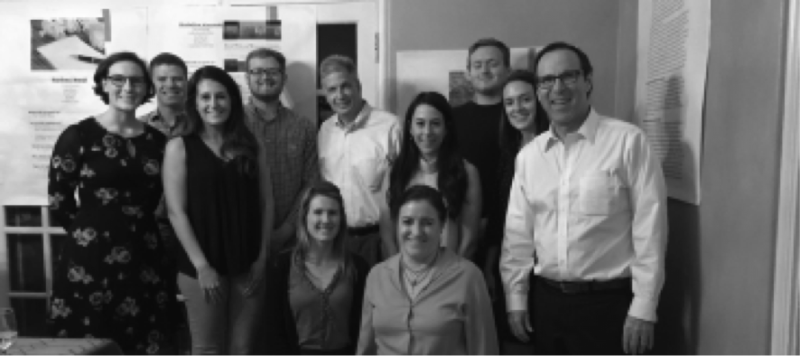Pick a word to describe the national political climate this year. Polarized, heated or divisive might be a few that come to mind. The atmosphere at Trinity has been no different, and tensions between members of different political groups have risen at times.
Despite their differences, the members of the Trinity Progressives and the Tigers for Liberty have been working to build respect and understanding between students of liberal and conservative viewpoints. In an effort to help facilitate these positive interactions, the Trinity administration invited representatives from both groups to a Mutual Understanding Dinner several weeks ago.
Vice president of student affairs Sheryl Tynes led the effort and hosted the students and other faculty in her home on Oakmont. Tynes says she wanted to facilitate personal conversation to create a sense of commonality. “I am a big believer in bringing people together face to face. People say and do things online that they wouldn’t if another person was sitting right in front of you,” Tynes said. “One of the things that has struck me most in the last year is that we’re a culture that focuses on highlighting differences rather than common threads. It’s in the common threads where we build empathy, understanding and humanity.”
Initially, some of the students struggled to think of what they might have in common with those from the organization that was not their own. After all, these socio-politically focused groups had a physically and emotionally tiring year advocating for opposing parties and policies.
“I anticipated a little bit of awkwardness,” said Trinity Progressives co-president and sophomore Maddie Kennedy. “I know that the publicity after the Dinesh D’Souza and accompanying flyer incident caused a lot of attention on the university’s political climate. I think the administration wanted to ensure that we had a space for cross-partisan political dialogues, and that this dinner was a way to provide that space very formally.”
To establish a sense of safety and openness, the six students, three from Trinity Progressives and three from Tigers for Liberty, along with Tynes, dean of students, David Tuttle, university president, Danny Anderson and director of student involvement Jamie Thompson, completed a survey before the dinner in which they were able to open up about personal strengths, struggles and stories. Their answers were displayed on posters around the room.
“I think it was really nice to get to know people on a more personal level than I would have otherwise “” I wouldn’t necessarily ask people “˜what were three formative experiences in your life?’ and it was really nice to be able to see everybody’s answers,” said junior Beth Legg, who was also representing Trinity Progressives at the dinner.
After opening up about the experiences that shape their world views, the students were able to begin engaging in discussions about their respective opinions.
“My understanding of progressive goals were definitely refined,” said first-year Isaiah Mitchell, who was representing Tigers for Liberty at the dinner. “I had considered (somewhat anxiously) beforehand that personal experience might be used as rhetorical ammunition during the discussion, but I was pleasantly wrong.”
Though they said they ultimately benefitted from the discussion, some felt the conversations felt superficial.
“I still felt like we were all walking on eggshells by the end of the night,” Mitchell said. “I hope people across campus will recognize the difference between conversational respect and unwillingness to discuss touchy issues. When we don’t delve into them, they stay touchy.”
The members of each organization plan to use what they learned at the dinner “” the importance of listening and understanding the experiences that form others’ world views “” as they move forward with their plans for the coming year.
“I think the biggest takeaway for me was continuing to get to know the people involved,” Kennedy said. “The more information you have about the way somebody processes the world, the better you will be able to interact with, relate with and understand that person. I plan to continue to host and foster events and spaces where people, regardless of political affiliation, can form relationships or talk about political issues, focusing on how building relationships can benefit this process.”







